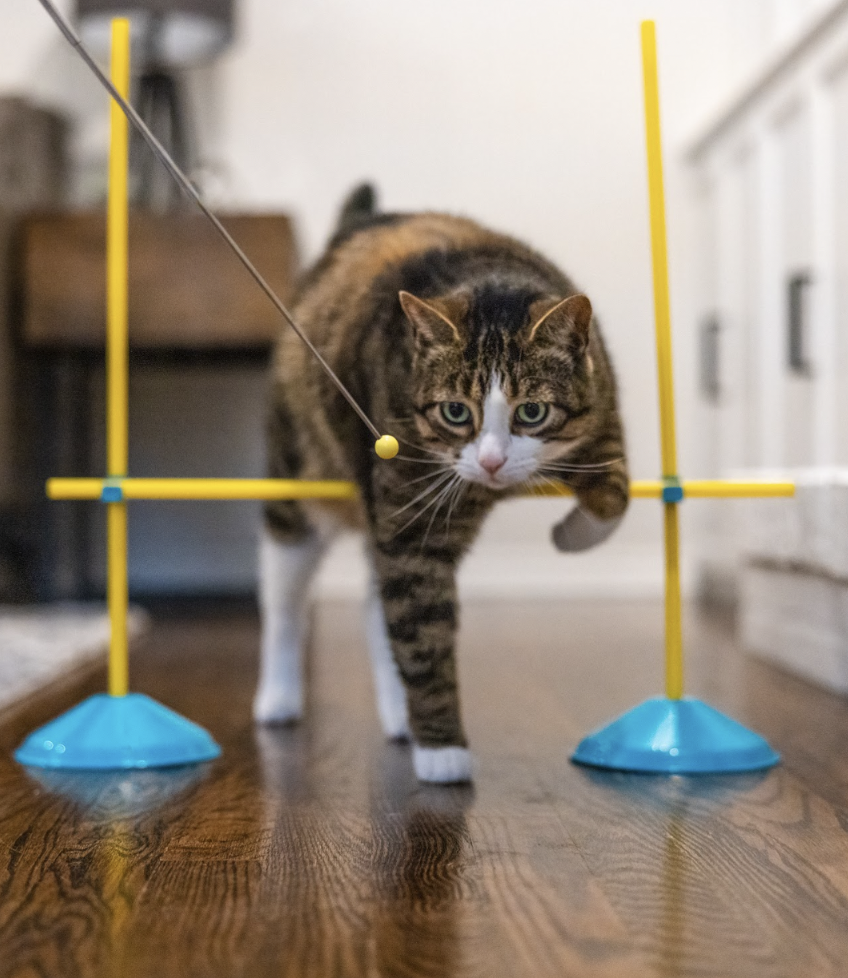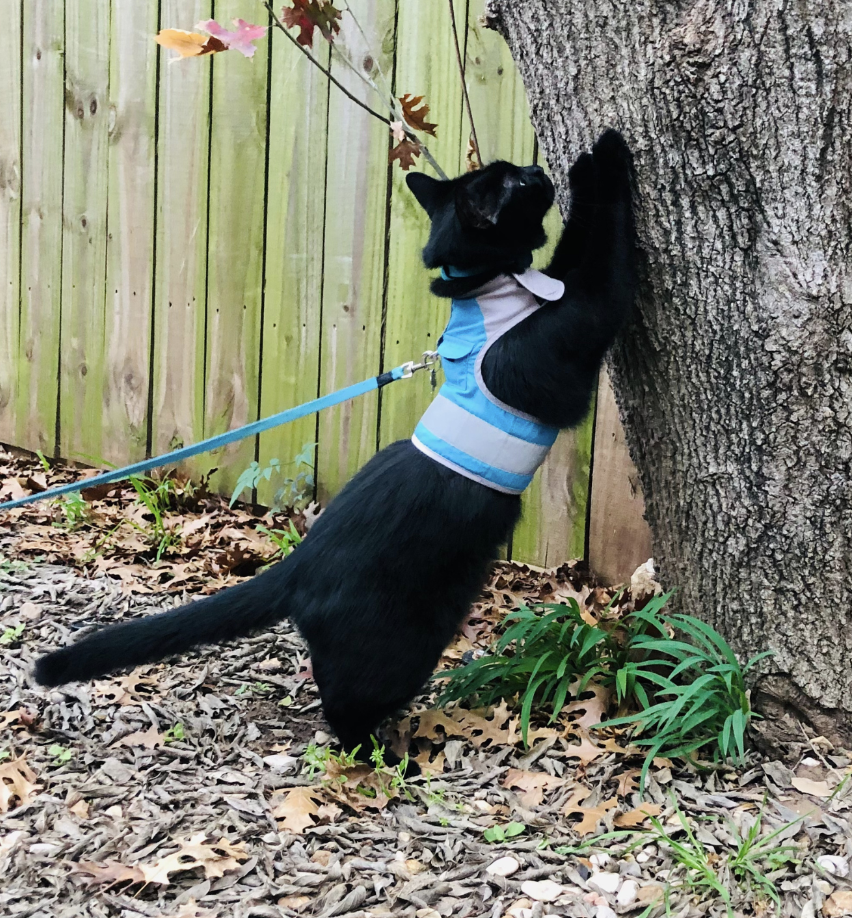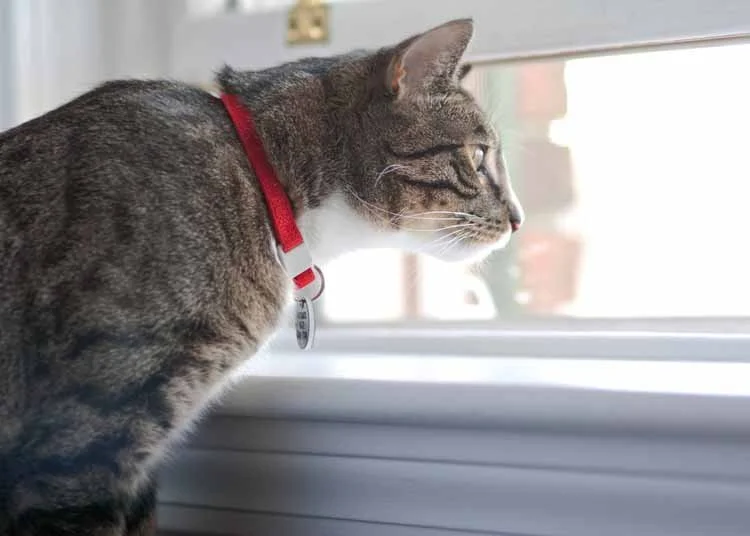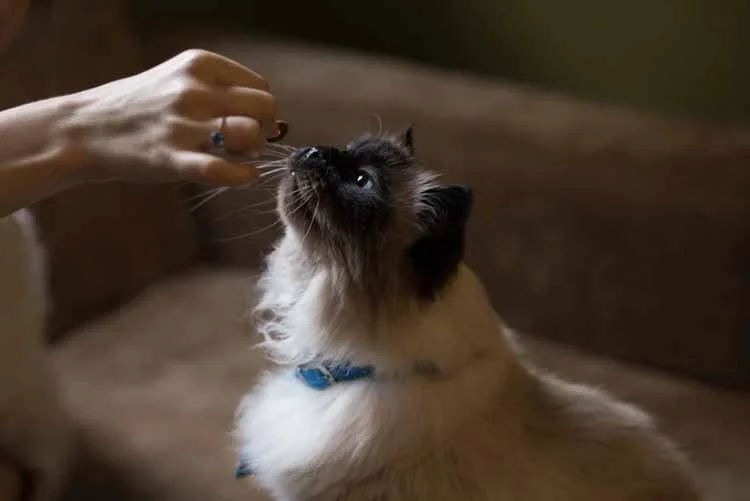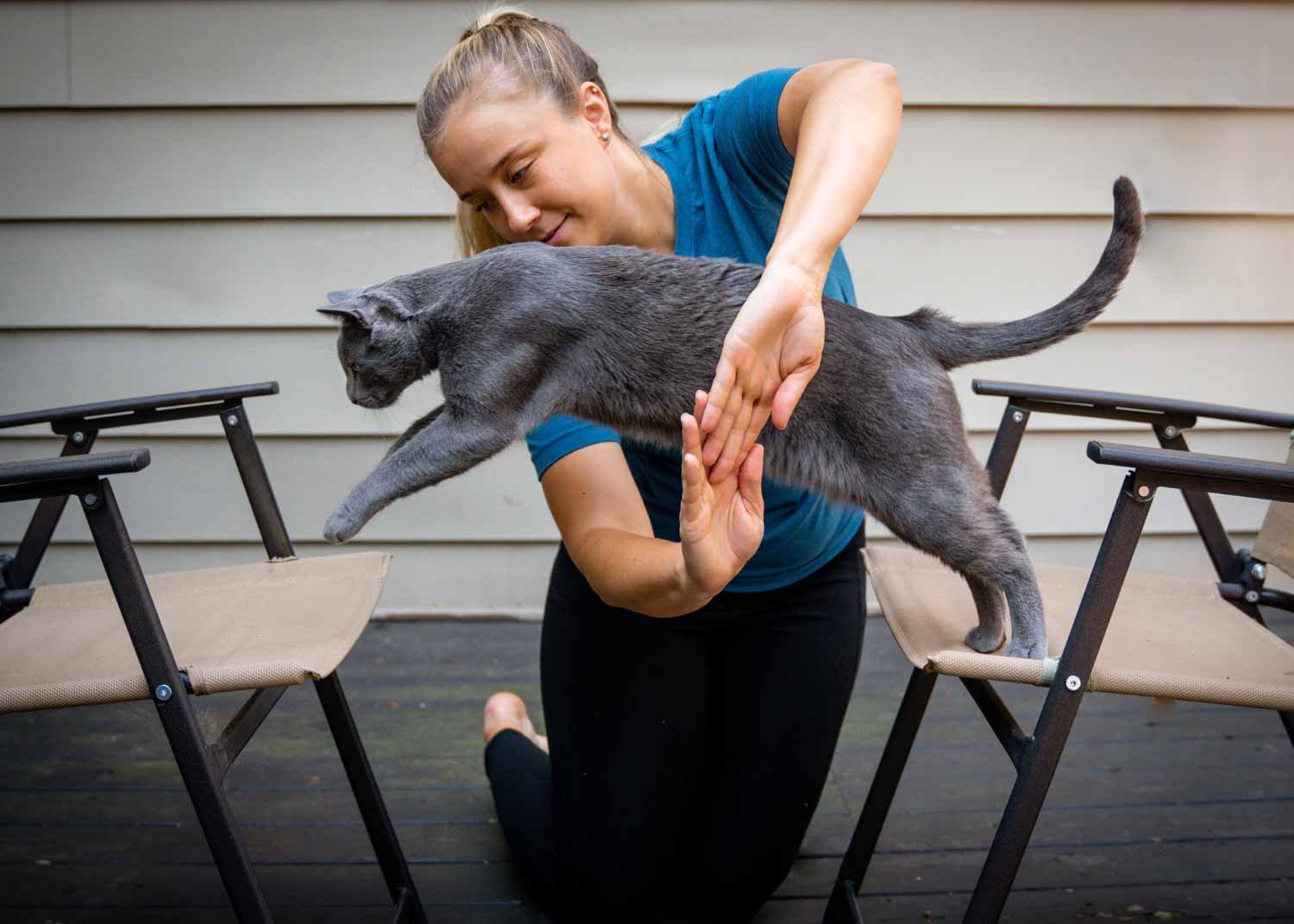Why People Clicker Train Their Cats: The Benefits Behind Feline Training
Table of Contents
Cats are known for their independent nature, but contrary to popular belief, they can be trained just as effectively as dogs. At The Cat School, we emphasize the power of positive reinforcement training to improve feline behavior, and the best ways to train a cat by strengthening the human-cat bond, and enhance overall well-being.
But why do people train their cats?
We polled our community to find out, and the answers were eye-opening.
6 Reasons Why People Train Their Cats
1. Behavioral Improvement and Mental Stimulation
Many cat parents start training to address behavioral challenges like aggression, boredom-induced destruction, or excessive meowing.
One of our Cat School students shared:
"I started clicker training for behaviour improvement to reduce aggression due to boredom and continued for mental stimulation because I see what a difference it makes for Mollee every day. I am also incredibly grateful that through training, she allows me to do a little bit of nail trimming and is willingly going in the carrier for the odd weekend trip." Toni H.
From a behavioral science perspective, training provides an essential outlet for energy and curiosity. Cats thrive when they engage in problem-solving tasks and interactive activities. Mental stimulation through training can prevent behavioral issues before they even begin, making for a happier, more content feline.
2. Cooperative Care: Stress-Free Vet Visits and Grooming
A major motivation for cat training is cooperative care—helping cats become comfortable with handling, vet visits, and grooming procedures.
“If a cat feels a bond with you—trusts and feels comfortable with you—cooperative care becomes possible. Clicker training makes this happen.” Vaughn K., Cat School Student
Cats naturally resist restraint, making procedures like nail trimming, teeth brushing, and administering medication stressful for both pet and owner. Training desensitizes them to these experiences, reducing anxiety and making routine care much easier.
3. Leash Training and Safe Outdoor Exploration
Leash training is a growing trend, offering cats the mental stimulation of the outdoors while keeping them safe. However, some animal rescues still discourage it due to misconceptions about feline trainability.
"I chose to train my cat because where I live it is now law that cats are not allowed outside unless fully contained/restrained." Helen D., Cat School Student
Leash training is not only possible but beneficial. It enriches a cat’s life by providing sensory experiences while maintaining safety from predators and traffic.
Do you need a leash for your furry friend?
Discover our leash walking kit here.
4. Strengthening the Human-Cat Bond
Training is not just about teaching commands—it’s about building trust and communication. A well-trained cat understands their guardian's cues, reducing frustration and fostering a deeper connection.
“Winter in the PNW is long and dark, so I needed mental stimulation for them while indoors. We only train once a day in the evening because that’s what my life will allow, but they love it so much and on days when I’m home during the day they go to the training supply closet ask for a morning session. It’s a really fun way to see their personalities show up in different ways.” Becca P., Cat School student
Additionally, training makes daily life with a cat more enjoyable. It can prevent unwanted behaviors like counter-surfing or vocalizing at mealtimes while introducing positive routines that both cats and humans look forward to.
5. Household Harmony: Multi-Cat Households and Socialization
Training is especially useful in multi-cat households where social dynamics can be tricky. Some cats need extra guidance to coexist peacefully.
Cat School Student, Heather S. shared:
“Charlie was a stray with play aggression issues so I couldn’t integrate him with the other cats. Clicker training Charlie has been a great help resolving his behavioral issue, stimulating his mind and teaching him new skills so that we could have more harmony in our home.”
By training cats to recognize personal boundaries and reinforcing positive interactions, cat parents can create a harmonious environment where all feline members feel safe and respected.
6. Training is Fun!
Beyond the practical benefits, cat training is an enjoyable activity for both cats and their guardians. It turns everyday moments into opportunities for engagement and learning.
As another student put it:
“I was so happy to find that the training was beneficial for Kosha in so many ways. I didn’t realize that it would help her become a much less fearful cat and change her life for the better.” - Lori, Cat School Student
Clicker training, target training, and tricks like high-fives or spinning in circles not only provide entertainment but also deepen the bond between cat and owner.
Training a cat is not an impossible endeavor. It’s easier than you think.
Our Clicker Training Kit
Our clicker training kit gives you all the tools and step-by-step instructions to build your cat’s repertoire of skills quickly while having fun.
Final Thoughts: The Science of Training Cats
Applied animal behaviorist and Cat School founder Julie Posluns recommends that students begin with simple skills to show cats that learning is fun and rewarding. One of her favorite beginner exercises is placing a treat inside a cup to see if the cat tries to get it out. Once a cat learns that working for food is enjoyable, the possibilities for training are endless.
Can cats really be trained like dogs?
Yes. Cats learn through positive reinforcement, just like dogs. Clicker training uses rewards to encourage desired behaviors, making it both effective and enjoyable.
What are the benefits of clicker training cats?
Clicker training improves behavior, reduces stress during vet visits, supports leash training, enhances bonding, and creates harmony in multi-cat households. It also provides crucial mental stimulation.
Is leash training safe for cats?
Yes. With proper harnesses and training, leash walking gives cats safe outdoor enrichment while protecting them from dangers like traffic or predators.
How does clicker training reduce stress during grooming or vet visits?
By gradually desensitizing cats to handling, training helps them stay calm during nail trims, carrier trips, or check-ups—turning stressful tasks into cooperative care.
How long does it take to train a cat?
With proper methods, cats learn quickly. If a cat is motivated by food rewards, they can learn new skills and tricks in just a few training sessions. Short, positive clicker training sessions are the secret to successful cat training.
Want to join our community and learn more?
Check out our training programs at The Cat School and take the first step in unlocking your cat’s full potential!

